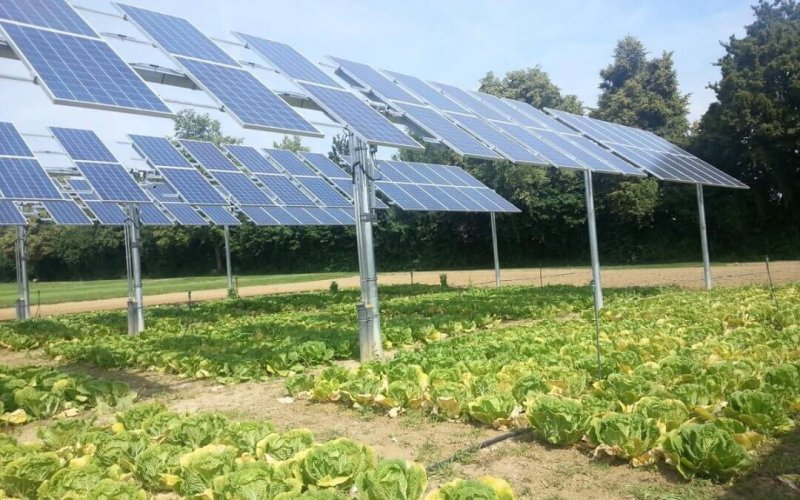Solar panels might seem like they’re in direct competition with plants. One is catching sunlight to do photosynthesis, the other wants to take it to push electrons. Surely Highlander rules apply, and there can be only one on a plot of land, right?
In reality, it’s not a zero-sum game. Some plants will burn in direct sun, after all, and so there are plenty of food crops that would be happy to share their space with panels. And as a new study led by the University of Arizona’s Greg Barron-Gafford shows, the combination isn’t even necessarily a compromise—there are some synergies that can bring significant benefits to a solar-agriculture.
…
The results showed that …. [a]ir temperatures stayed a little over 1°C cooler during the day, on average, but they also stayed about 0.5°C warmer overnight. The temperature of the solar panels, though, was about 9°C cooler during the day because of the growth beneath them. The …. soil dried out more slowly between waterings.
…
Based on the temperature-efficiency curves of these solar panels, the researchers calculated that the cooler temperatures should increase electricity generation by about 3% over the summer months, averaging out to a 1% gain for the whole year.
Read full, original article: Crops under solar panels can be a win-win































